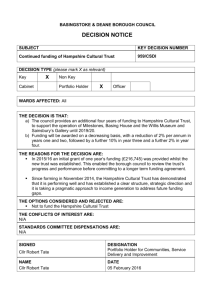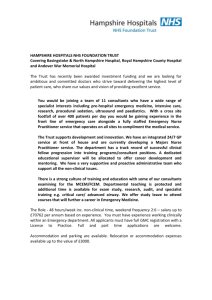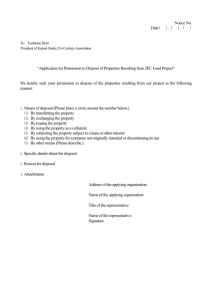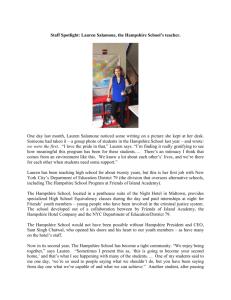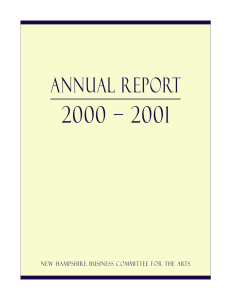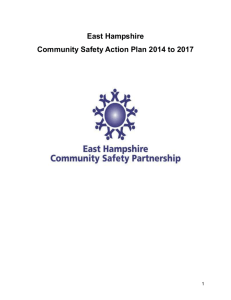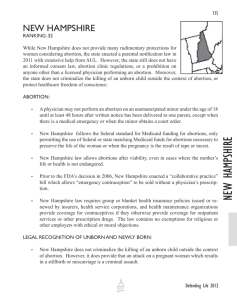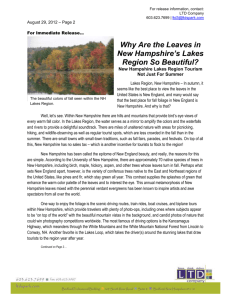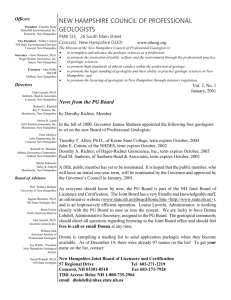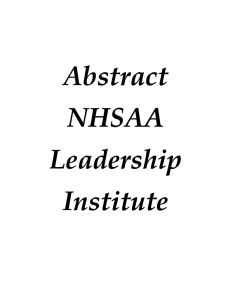PRESS RELEASE
advertisement
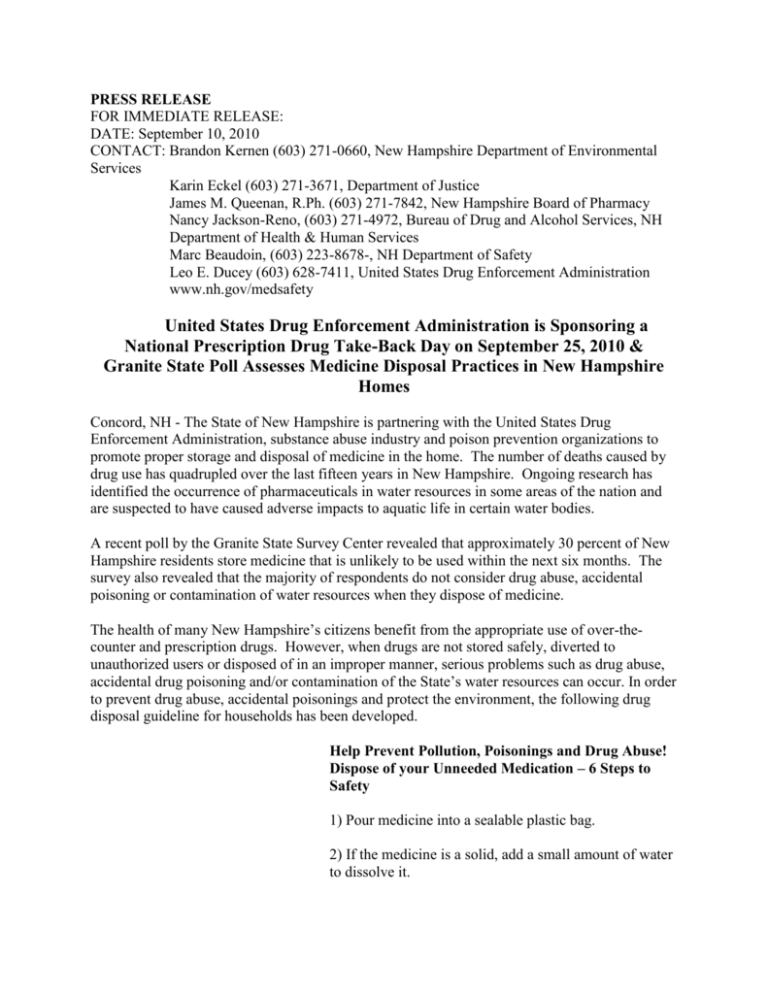
PRESS RELEASE FOR IMMEDIATE RELEASE: DATE: September 10, 2010 CONTACT: Brandon Kernen (603) 271-0660, New Hampshire Department of Environmental Services Karin Eckel (603) 271-3671, Department of Justice James M. Queenan, R.Ph. (603) 271-7842, New Hampshire Board of Pharmacy Nancy Jackson-Reno, (603) 271-4972, Bureau of Drug and Alcohol Services, NH Department of Health & Human Services Marc Beaudoin, (603) 223-8678-, NH Department of Safety Leo E. Ducey (603) 628-7411, United States Drug Enforcement Administration www.nh.gov/medsafety United States Drug Enforcement Administration is Sponsoring a National Prescription Drug Take-Back Day on September 25, 2010 & Granite State Poll Assesses Medicine Disposal Practices in New Hampshire Homes Concord, NH - The State of New Hampshire is partnering with the United States Drug Enforcement Administration, substance abuse industry and poison prevention organizations to promote proper storage and disposal of medicine in the home. The number of deaths caused by drug use has quadrupled over the last fifteen years in New Hampshire. Ongoing research has identified the occurrence of pharmaceuticals in water resources in some areas of the nation and are suspected to have caused adverse impacts to aquatic life in certain water bodies. A recent poll by the Granite State Survey Center revealed that approximately 30 percent of New Hampshire residents store medicine that is unlikely to be used within the next six months. The survey also revealed that the majority of respondents do not consider drug abuse, accidental poisoning or contamination of water resources when they dispose of medicine. The health of many New Hampshire’s citizens benefit from the appropriate use of over-thecounter and prescription drugs. However, when drugs are not stored safely, diverted to unauthorized users or disposed of in an improper manner, serious problems such as drug abuse, accidental drug poisoning and/or contamination of the State’s water resources can occur. In order to prevent drug abuse, accidental poisonings and protect the environment, the following drug disposal guideline for households has been developed. Help Prevent Pollution, Poisonings and Drug Abuse! Dispose of your Unneeded Medication – 6 Steps to Safety 1) Pour medicine into a sealable plastic bag. 2) If the medicine is a solid, add a small amount of water to dissolve it. 3) Add any undesirable substance (such as dirt, coffee grounds or kitty litter) to the liquid medicine in the plastic bag. 4) Seal the bag and immediately dispose of it in the trash for regular pick-up. 5) Use marker to black out any personal contact information on the empty medicine container prior to disposing of it in the trash. 6) For more information, consult www.nh.gov/medsafety. Medicine collection events staffed by law enforcement, if readily available, are also good options for safely disposing of unwanted medicine. The United States Drug Enforcement Administration is sponsoring a National Drug Collection Day on September 25, 2010. Collection sites will be posted on www.dea.gov as they are established between now and September 25, 2010. Check their website frequently for updates. NEVER flush medicine down the toilet unless accompanying product information instructs otherwise. Don't keep unneeded medications in the home. In case of an accidental poisoning or for information about your medication, call the poison center at 1-800-222-1222.
